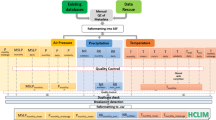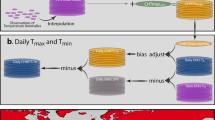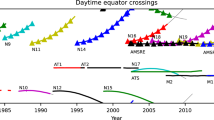Abstract
IN a note in NATURE of March 31 referring to one of the publications of the Meteorological Office occurs the remark: "The normal constant for absolute temperature given is 200°. With a normal constant of 273° the resulting values would be in ordinary degrees Centigrade, a system adopted by many meteorologists on the Continent and by some at home. To the uninitiated it gives a reading more easily comprehended, although some of the values would be given with the negative sign". Whatever may be the meaning of the "normal constant" for any scale of temperatures, may I express my disagreement with the opinion, and give a reason for doing so? Premising that, when dealing with the upper air, it is not the few, but the great majority of readings that have the negative sign on the Centigrade thermometer, my reason is that, to the uninitiated, negative values are not an aid, but a terrible obstruction to comprehension, because their use implies a process of thinking in two directions, upwards and downwards, at the same time, and keeping the two trains of thought distinct.
This is a preview of subscription content, access via your institution
Access options
Subscribe to this journal
Receive 51 print issues and online access
$199.00 per year
only $3.90 per issue
Buy this article
- Purchase on Springer Link
- Instant access to full article PDF
Prices may be subject to local taxes which are calculated during checkout
Similar content being viewed by others
Rights and permissions
About this article
Cite this article
SHAW, N. "Absolute" Temperatures in Meteorological Publications. Nature 107, 201–202 (1921). https://doi.org/10.1038/107201b0
Issue Date:
DOI: https://doi.org/10.1038/107201b0
Comments
By submitting a comment you agree to abide by our Terms and Community Guidelines. If you find something abusive or that does not comply with our terms or guidelines please flag it as inappropriate.



